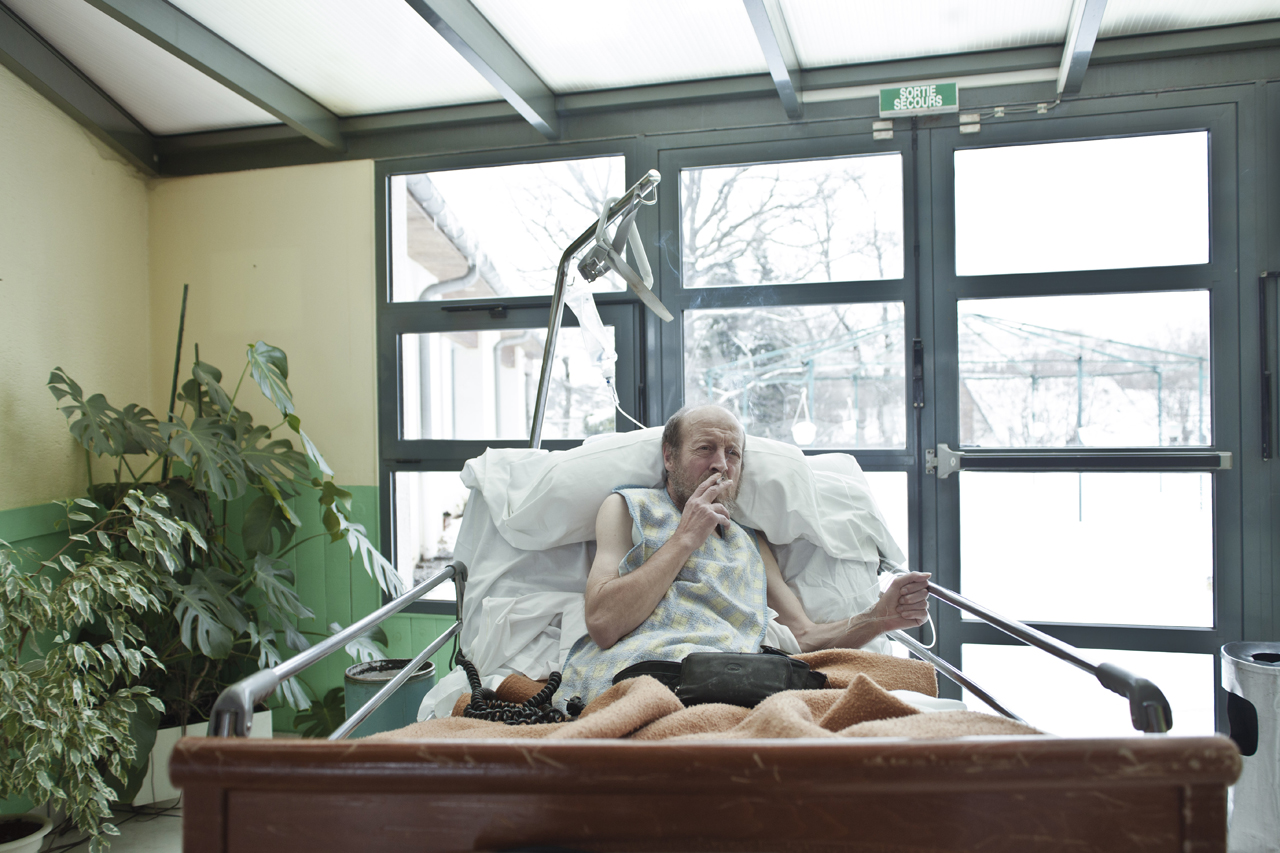-
From the Under Pressure website:
a
http://www.underpressureproject.eu/web/country-profile/france
a
France has a medium to high prevalence of MS. Overall policies and provision for people with MS are good.
a
Discrimination against people with disabilities is forbidden by French law and enforced effectively. Access to treatment and therapies is reasonably good and the health system also covers symptomatic treatment and rehabilitation.
a
The ratio of neurologists is very high, so patients can be followed closely. A quarter of people with MS work part-time and about one third full-time. French law also protects people with MS in employment and they can request flexible conditions. Early retirement with a small pension is also possible.
a
However, there is less financial support for home and workplace adaptation, compared to other countries.
-
 Riom-ès-Montagne, France, 02/2012 • Smoking is a risk factor for more rapid progression of MS. But the Centre Geneviève Champsaur, a residence for 36 people with severe disability, refuses to prohibit it. “We believe every resident should be free to do whatever makes them feel alive,” says Dr. Marie-Noël Lemay, “Part of that is choosing their own risks. We educate them about risks, but we will not decide what they can or cannot do.” Smoking is a daily pleasure for Francis Nicollas; others focus on choosing what they’d like to eat at each meal. Every year, each resident must identify a “Life Project” – the one thing he or she would like to achieve in that year. All staff participates in realising these goals, which range from visiting the Eiffel Tower to being strapped into a metal chair to tag along on a downhill ski run.
Riom-ès-Montagne, France, 02/2012 • Smoking is a risk factor for more rapid progression of MS. But the Centre Geneviève Champsaur, a residence for 36 people with severe disability, refuses to prohibit it. “We believe every resident should be free to do whatever makes them feel alive,” says Dr. Marie-Noël Lemay, “Part of that is choosing their own risks. We educate them about risks, but we will not decide what they can or cannot do.” Smoking is a daily pleasure for Francis Nicollas; others focus on choosing what they’d like to eat at each meal. Every year, each resident must identify a “Life Project” – the one thing he or she would like to achieve in that year. All staff participates in realising these goals, which range from visiting the Eiffel Tower to being strapped into a metal chair to tag along on a downhill ski run.